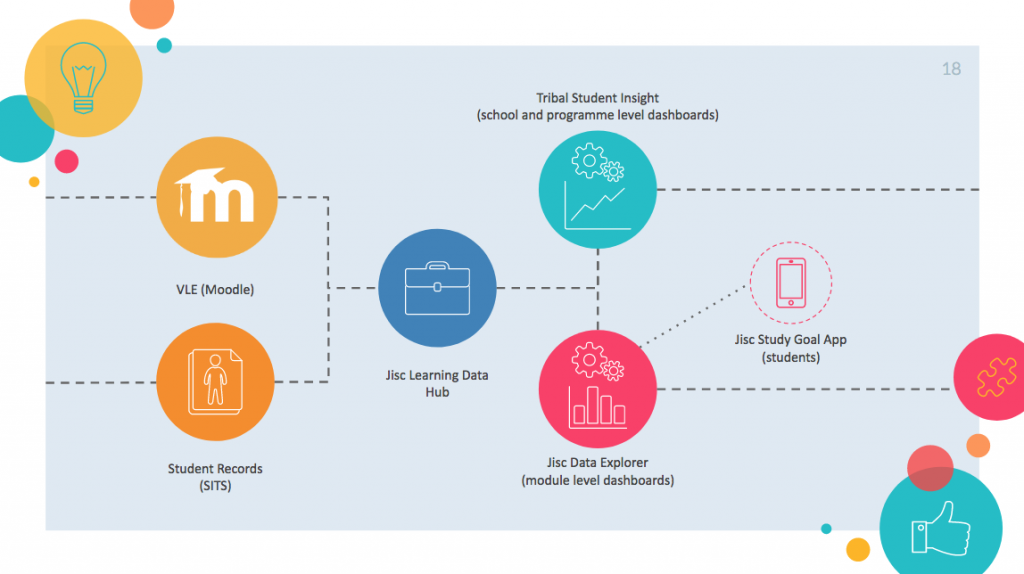
There was recently been at a one day conference run by JISC on Learning Analytics (namely, the collection and analysis of data on student learning patterns). The event was the culmination of a pilot study involving the Universities of South Wales, Gloucester and Greenwich, the focus of which was to explore the use and benefits of learning analytics to higher education institutions.
To this end, JISC and the project partners have developed a “Data Hub” repository to collect data, a “Data Explorer” dashboard for staff to explore student progress and a “Study Goal” app to help students understand their own progress.
The system collates data from various sources, including in-class attendance registers, VLE interaction (tracking data from Moodle and/or Blackboard) and usage patterns of learning resources (such as computing facilities, lab equipment, library resources etc.). This data can then be made available to both staff and students in order to improve aspects of the teaching and learning process.
In what kinds of scenarios might such data be useful ?
- Imagine knowing exactly what each of your personal tutees have been up to (instead of having to ask them the usual speculative “so how are things going” type questions).
- Imagine the annual revision of unit content with the aid of detailed insight into which lectures and materials had been most popular (and which had been overlooked or ignored).
- Imagine being able to predict which students on your unit were on track to get first class grades (and which students are likely to fail) … even before you have actually set the assignment !
Sure, there are a myriad of challenges and issues to be overcome – not least of which are: technical problems of development and deployment such a system; The Orwellian dystopia of constant monitoring (there was even talk of attendance tracking using geolocation !); The difficulty of performing analysis on partial or inaccuracy information.
But in these times of growing cohort sizes and increasing emphasis on student well-being, perhaps this could be a positive step forward in terms of awareness of engagement and insight into student learning patterns and progress ?

